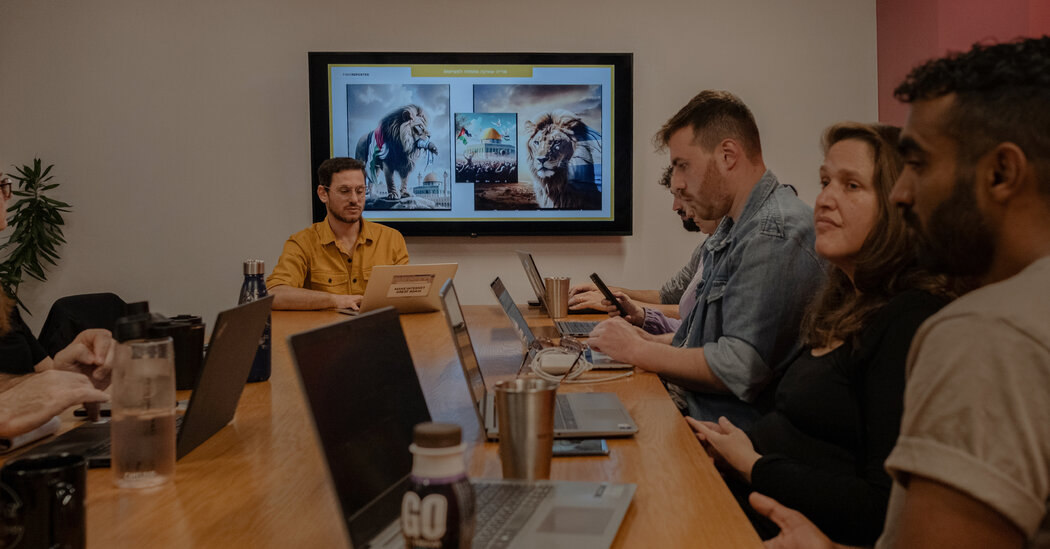Since the initial [Oct. 7] attack, disinformation watchdogs in the region have been overwhelmed by unfounded narratives, manipulated media and conspiracy theories. The content has spread in enormous volumes at great speed: video game clips and old news reports masquerading as current footage, attempts to disavow authentic photos as artificially generated, inaccurate translations and false accusations distributed in multiple languages.
In the fog of war, rumors and lies are especially dangerous, capable of taking on the veneer of fact and affecting decisions. Fact checkers and misinformation analysts are meant to be part of the defense, offering a cleareyed examination of the available evidence.
The work, however, is hard even for seasoned professionals, who faced pushback while fighting false and misleading narratives across multiple elections and a pandemic. In the Mideast, where fact-checking websites and disinformation research are relatively nascent and often poorly funded, the challenges have been compounded.
I don’t understand why people have a problem with fact checking organizations. Whichever side you’re on, unless you’re actively out to cause harm with misinformation, why wouldn’t you want to know what’s true and what’s not?
Don’t underestimate people who have a vested interest in one side of a story and are willing to sacrifice anything to push that agenda.
That and the danger that a group will take their status and abuse it to push a particular agenda despite evidence to the contrary. At that point they’re not fact checking - they’re actively pushing disinformation.
This is the best summary I could come up with:
In the frantic early hours of Oct. 7, amid wailing sirens and word of gunfights along Israel’s southern border, Achiya Schatz rushed with his toddler and heavily pregnant wife into a bomb shelter near Tel Aviv.
Mr. Schatz, one of the best-known disinformation researchers and fact checkers in Israel, rushed back home to his computer, knowing he had little time to stop the false claims from metastasizing.
The content has spread in enormous volumes at great speed: video game clips and old news reports masquerading as current footage, attempts to disavow authentic photos as artificially generated, inaccurate translations and false accusations distributed in multiple languages.
Their mental health is in a precarious position — fact checkers face post-traumatic stress disorder brought on by ongoing exposure to violent and graphic imagery; some are mourning colleagues and relatives who have been killed.
Eight years ago, he founded a fact-checking initiative called Tahaqaq Observatory, which translates to “verification.” Between Oct. 7 and Dec. 25, he and his team of nine fact checkers published an average of nearly two reports a day — nearly four times their September rate.
Tahaqaq has also examined false and misleading claims from Palestinian and other Arab accounts, including a video mistranslated to suggest that an Israeli officer was bemoaning the difficulty of fighting Hamas when he was actually discussing the precision and professionalism of his troops.
The original article contains 1,432 words, the summary contains 228 words. Saved 84%. I’m a bot and I’m open source!



